How to do it:
- Submerge the item in white vinegar and let sit overnight.
- Note: If your item can’t be submerged, soak rags in white vinegar and wrap the rusted area.
- Remove the item and scrape it with a metal brush or steel wool.
Potato and dish soap
This method may sound a little crazy, but it actually works! This method is a relatively fast and quite easy method for removing rust. It works great on kitchen appliances — plus, this method uses items you probably already have in your pantry.
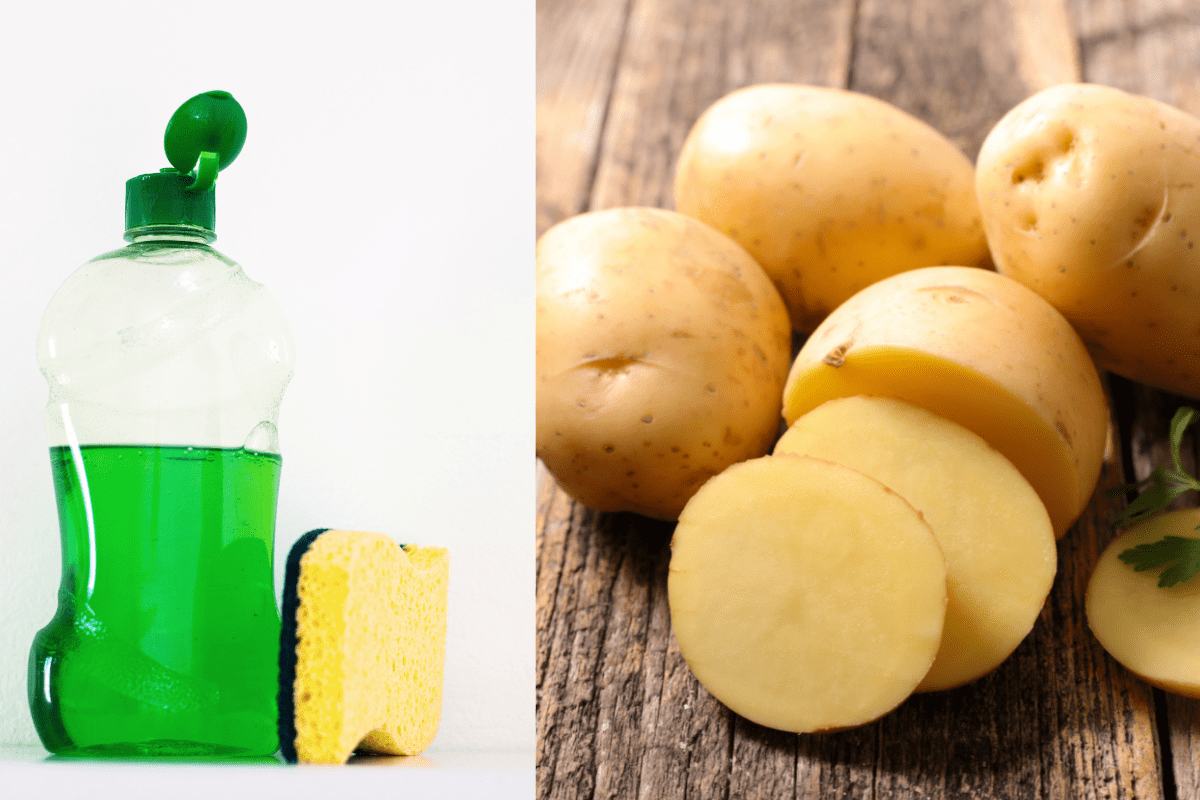
Photo Credit: margouillatphotos via Canva
This method is best used on small, less-stubborn rust stains on easy-to-reach surfaces. On the downside, though, this is probably the messiest method for removing rust. Ensure you work over a sink or someplace outdoors where cleanup is easy
How to do it:
- Cut your potato in half and cover the open end with dish soap.
- Use the potato like you would a scouring pad and watch closely as the rust fades away as it responds with the soap and potato.
Citric acid
You might not have this laying around the house, but it can be easily found at most health food stores. It is most suitable to be used on significant rust found on tools or items that can be submerged without compromising the integrity of other surfaces and coatings. Be careful with this method because citric acid will remove paint!
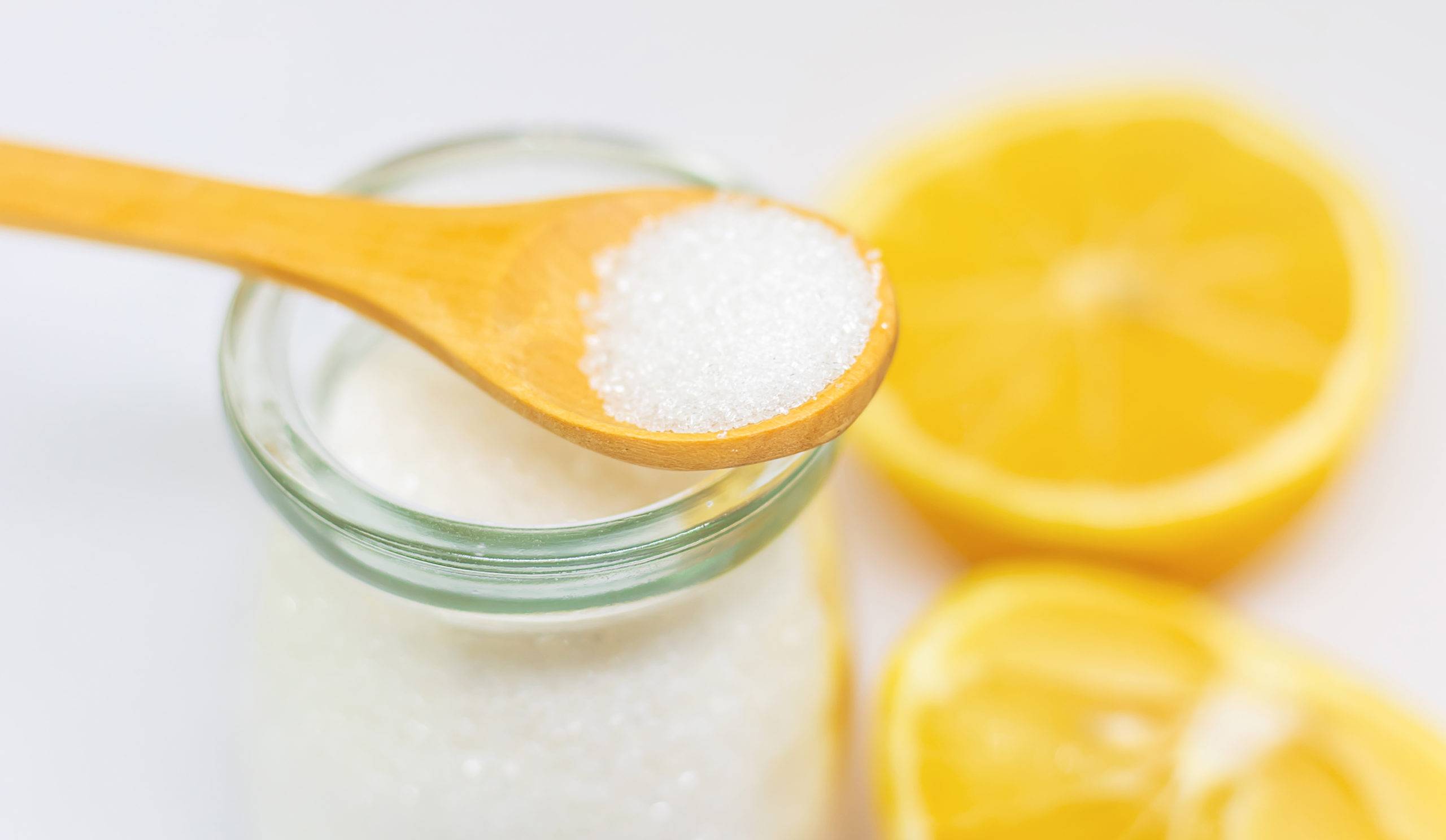
Photo Credit: yanadjana via Envato Elements
This is another “let sit and forget” method and works like a champ, but the downside is that most people don’t have this ingredient laying around the house — if you want a method that really works, this one is worth a trip to the store.
- Add a few inches of hot water to a bowl and sprinkle in 2-3 tablespoons of citric acid.
- Submerge your item and let it sit overnight; remove it in the morning.
- Scrub off lingering rust flecks with a brush, rinse, and pat dry.
Lemon and salt
Lemon and salt is another great method for removing rust because these two items are most likely items you will already have in your kitchen. This method is great for less stubborn rust stains. It works great for kitchen knives that have little bits of rust here and there. This minimally abrasive process works quite well, though.
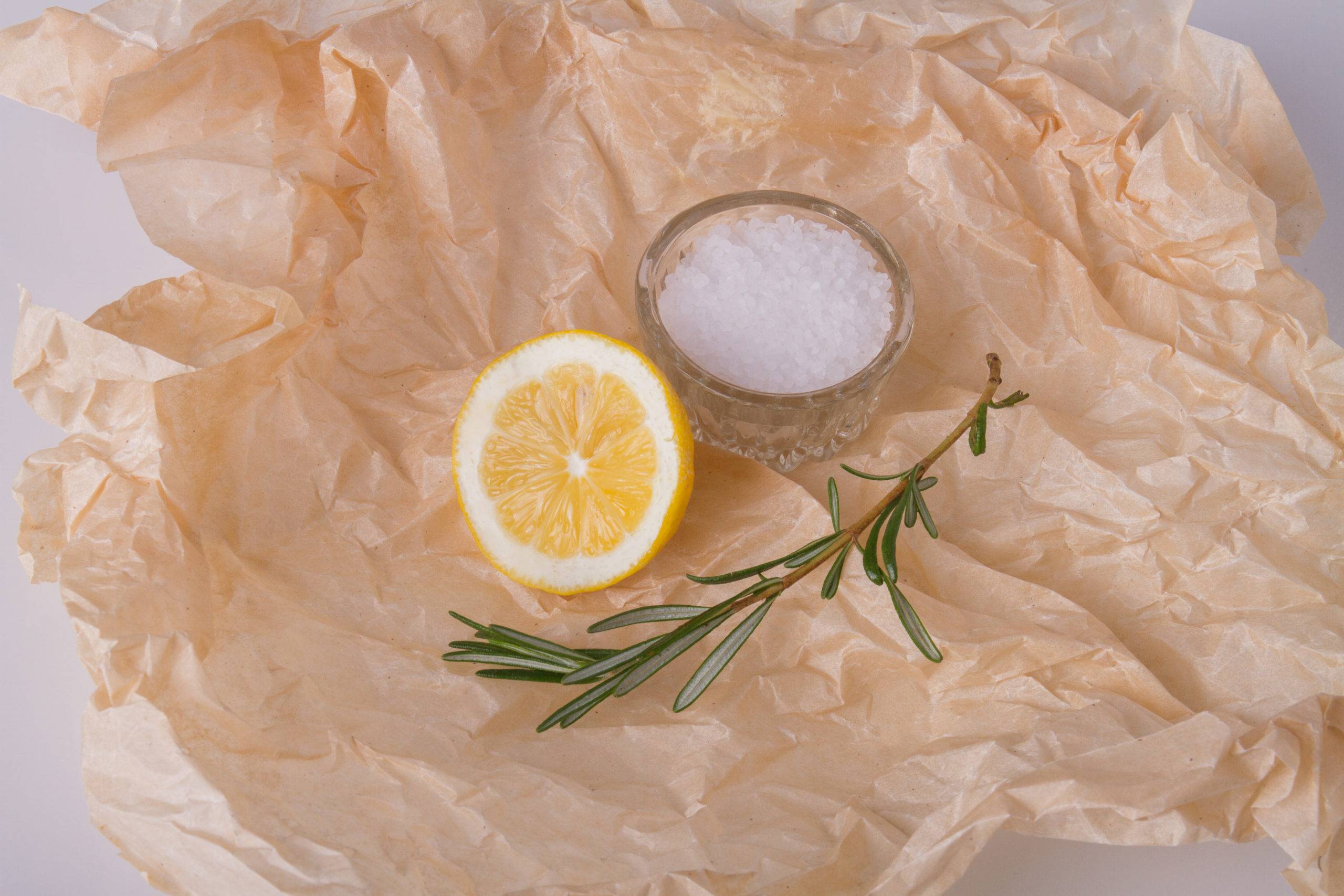
Photo Credit: stockfilmstudio via Envato Elements
If you’re going to be using this method to scrub the rust off a kitchen knife, be sure to wear a protective glove. This process can be tricky to navigate without cutting yourself.
How to do it:
- Generously coat the rusted area in a layer of salt
- Cut a lemon in half, and squeeze the juice over the salt.
- Let the mixture sit, then scrub away the rust with the rind.
- If rust remains, repeat the procedure and let the salt and juice sit for another hour or two until rust disappears completely.
- Rinse, then pat dry.
Subsequently, you can also use lime instead of a lemon.
Removing Rust With Tools
If you don’t want to try removing rust with any of these chemical or cleaning methods, you can try to remove it with power tools. Below are some tools and methods that you can use to remove rust
Be careful with these methods: They can be quite abrasive.
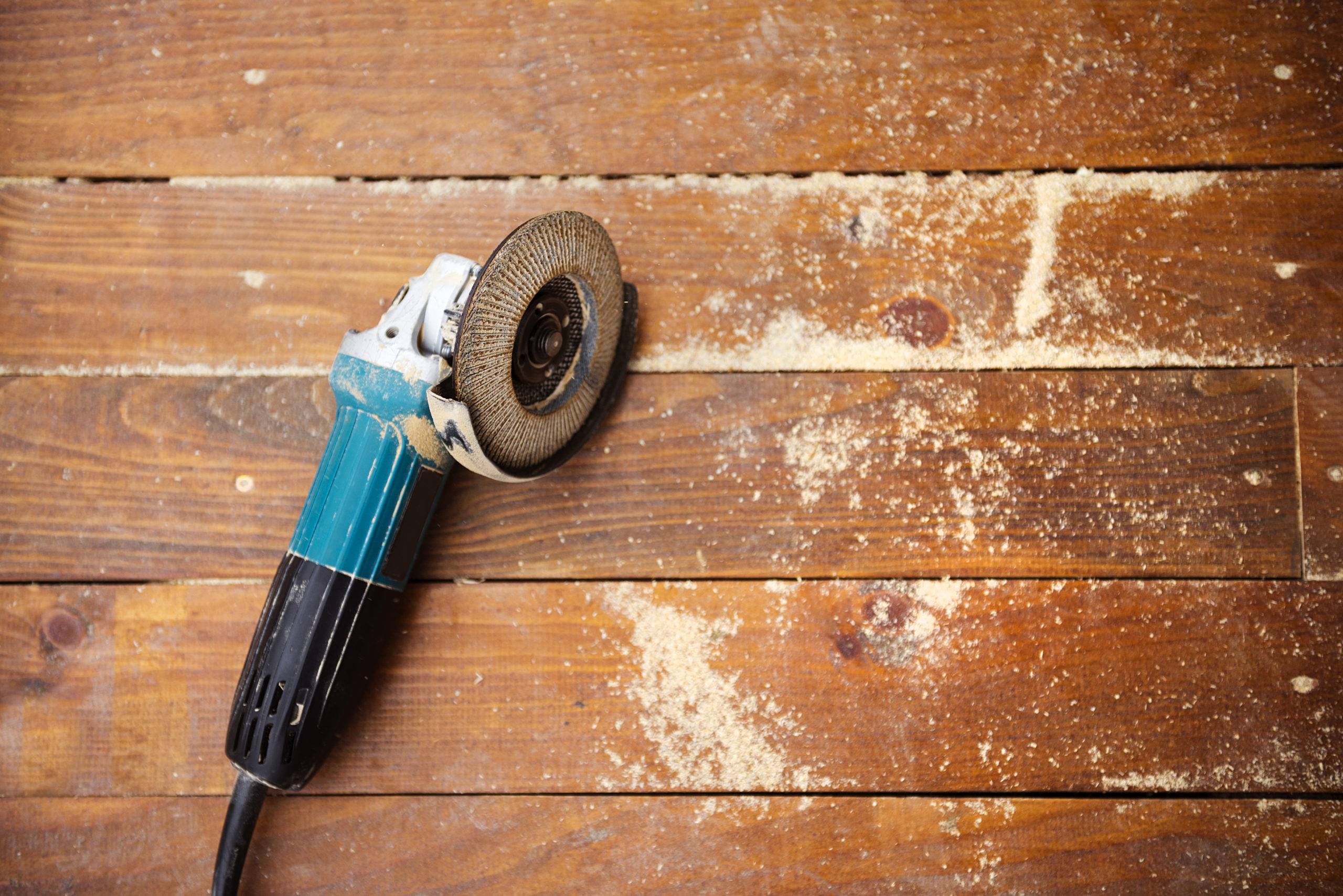
Photo Credit: halfpoint via Envato Elements
Grinder, Sander, or Oscillating Tool
You can use a grinder, sander, or oscillating tool to remove rust. Always start with the coarsest abrasive no matter which tool you choose. Once the rust is gone, exchange it for a finer grit to smooth out the swirls and grooves caused by the coarse grit. Finish sanding with 400-grit wet/dry paper for the smoothest paint job.
Detail Sander
Use a detail sander for rusted metal corners, tight spots, and small details.
Drill and Drill Accessories
Drill-mounted wire wheels and stripping discs can be used as a rust remover instead of or in addition to grinders, though they don’t have as much power or cover as much surface area.
Convert Rust
If you’re looking for the easiest method to get rid of rust, just covert it! If you can live with the look of a rough or pockmarked finish, a rust converter can save you a lot of time. It kills the rust, prevents its spread, and dries into a ready-to-paint primer.
You can buy this product at most home improvement stores.
How to use it:
- Remove any flaking paint and rusty dust with a wire brush.
- Spray on the converter or apply it with a disposable paintbrush.
- Let it dry for the recommended time.
- Tip: Even though the label says you can paint after it dries into a primer coat, spray on a real primer if you want a better finish.
- Apply a second coat of converter if you’re not going to paint.
- Tip: Don’t return the leftover converter to the bottle—it will contaminate the rest. Throw it in the trash, along with the brush.
Frequently Asked Questions (FAQs)
How do you prevent rust?
Of course, the best way to deal with rust is to avoid it in the first place, so keep your tools dry and out of humid and damp conditions. Tools should be regularly cleaned, oiled, and maintained.
Other methods to prevent rusting are protective finishes applied to steel, such as Bluing (often used on small steel items for watches and clock mechanisms), powder coatings (These could be acrylic, vinyl, epoxy, etc), or galvanizing (molten zinc coating)
You can also prevent rust on metal outdoor furniture by spraying or sealing with a primer before painting and good quality sealer after you have finished painting.
What is the best method to use to remove rust on a baking pan or sheet?
For less severe rust, like rust that builds up on a baking pan or sheet, the best method is the baking soda method mentioned above.
Does WD-40 Remove rust?
We use WD-40 to lubricate squeaky metal, but it can also be used to remove rust too. Spray it on the surface, wait around ten minutes, and scrub it off with something abrasive. Its lubricating qualities loosen the bonds between the rust and the metal surface it has adhered to. And because it’s also a moisture deterrent, it offers temporary rust protection after its initial use.
How do you remove rust without scrubbing?
The best way to remove rust without having to scrub is to use one of the methods above that involve soaking the item overnight. The citric acid method and the vinegar bath method are both examples of removing rust where very little to no scrubbing is involved.
Do all metals rust?
All metals are susceptible to corrosion in some form or another, but the term ‘Rust’ is only used when referring to Iron, Iron alloys, and steel.
Aluminum, Brass, Bronze, Galvanised steel, Stainless Steel, Copper, Titanium, and noble metals such as Gold, Silver, and Platinum are all metals that do not rust. They can corrode, stain, or tarnish, but they will not rust.
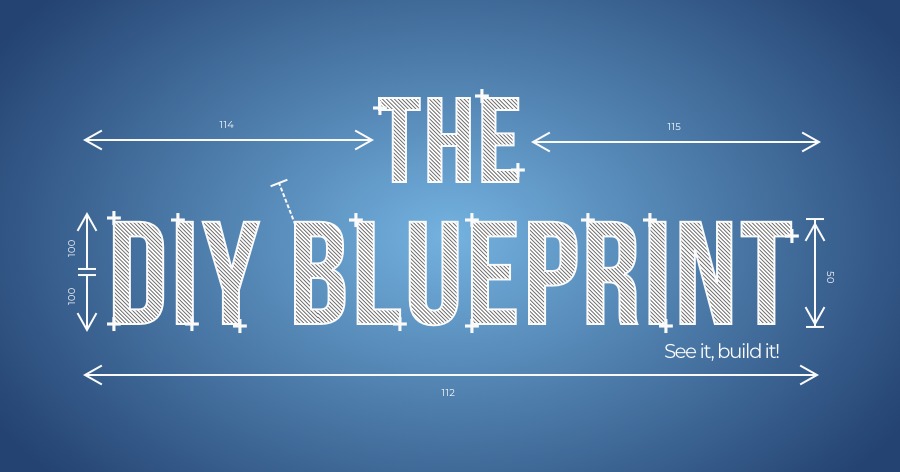
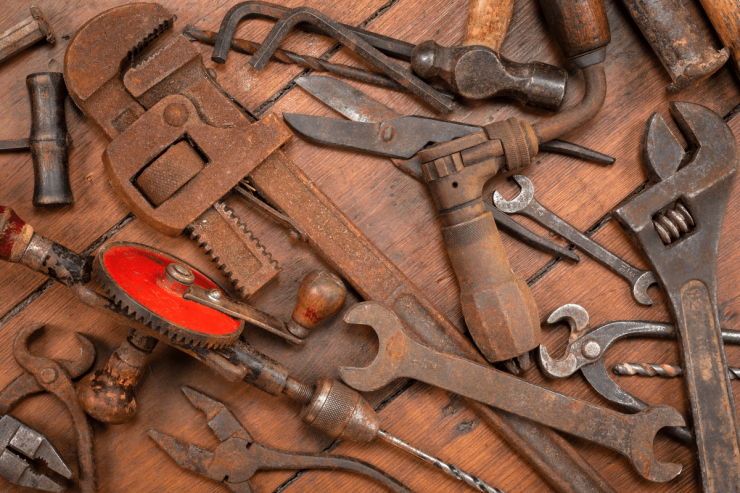

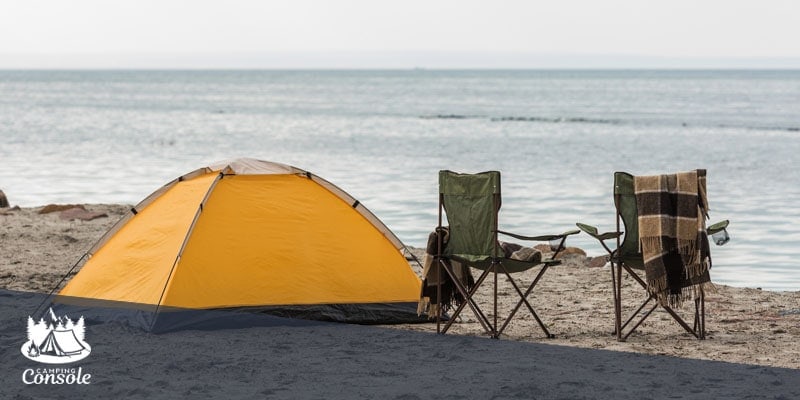

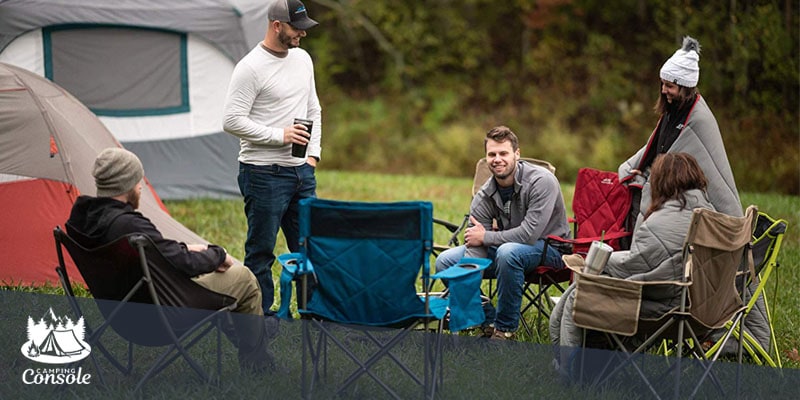
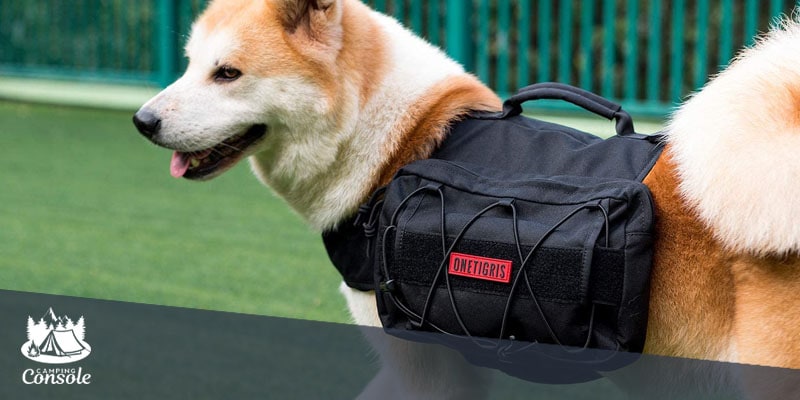


Add comment